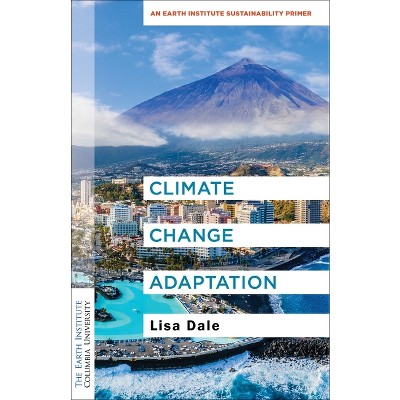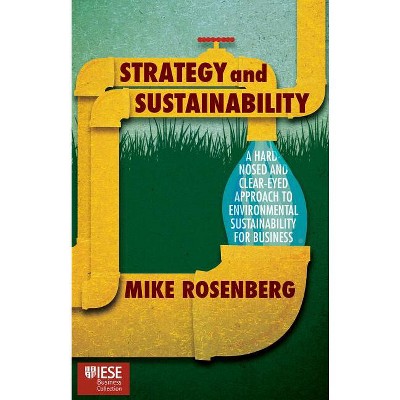About this item
Highlights
- Sustainability has become a touchstone for development worldwide, promising an antidote to environmental degradation and capitalism's excess: waste.
- About the Author: Elana Resnick is Assistant Professor of Anthropology at the University of California, Santa Barbara.
- 296 Pages
- Social Science, Anthropology
Description
About the Book
"Sustainability has become a touchstone for development worldwide, promising an antidote to environmental degradation and capitalism's excess: waste. Refusing Sustainability presents a fundamentally different account of sustainability and waste itself by uncovering the intersections of international environmental reforms and racialized labor. In Bulgaria, Roma comprise the bulk of the country's waste workers, while anti-Roma racism casts them as socially disposable. Without their labor, however, the country cannot meet the sustainability targets required by the European Union. Drawing on fieldwork that spans twenty years, including 11 months working alongside Romani women street sweepers, and years embedded in waste organizations, political campaigns, Roma NGOs, and activist groups, Elana Resnick analyzes the power hierarchies at play in both waste management and European expansion projects. Simultaneously, she examines how communities racialized as discardable push back against a system that relies on and excludes them. Instead of focusing on only environmental harms or toxic distributions, Refusing Sustainability approaches Romani life-worlds as spaces of creative production. Resnick tells the stories of ordinary people who reject the status quo--the conditions of what she calls racial sustainability. Through their experiences, she also tells several larger stories: of postsocialist racial capitalism, environmental progressivism, Europeanization, the failure of democratic politics, neighborhood mutual aid, and the power of women's friendships"--Book Synopsis
Sustainability has become a touchstone for development worldwide, promising an antidote to environmental degradation and capitalism's excess: waste. Refusing Sustainability presents a fundamentally different account of sustainability and waste itself by uncovering the intersections of international environmental reforms and racialized labor. In Bulgaria, Roma comprise the bulk of the country's waste workers, while anti-Roma racism casts them as socially disposable. Without their labor, however, the country cannot meet the sustainability targets required by the European Union. Drawing on fieldwork that spans twenty years, including eleven months working alongside Romani women street sweepers, and years embedded in waste organizations, political campaigns, Roma NGOs, and activist groups, Elana Resnick examines the power hierarchies that shape both waste management and European geopolitics.
Instead of focusing on only environmental harms or toxic distributions, Refusing Sustainability approaches Romani life-worlds as spaces of creative production, and also tells several larger stories: of postsocialist racial capitalism, environmental progressivism, democratic failures, mutual aid, and the power of women's friendships. Through these stories, Resnick illuminates how ordinary people, racialized as discardable, resist systems that simultaneously rely on and exclude them.
Review Quotes
"Elana Resnick seamlessly weaves her own, powerful experiences as a street sweeper as she makes compelling arguments about sustainability policies and forms of racialization at play at the margins of Europe. The writing sparkles and the book's key contributions to discussions about environmentalism are important and timely - this is a superb book." --Sophia Stamatopoulou-Robbins, author of Waste Siege: The Life of Infrastructure in Palestine
"Resnick confronts the enduring, mutually constituting relationship between modernity and race in this innovative and beautifully written ethnography. Bringing us to Bulgaria where the absent presence of race haunts environmental sustainability efforts, Refusing Sustainability, identifies the subtleties embedded in taken for granted investments in environmental protections that reinforce the status quo of racial order. Through the deft employment of grounded ethnography as theory, Resnick poses the possibility of imagining life-worlds beyond the destructive forces that render some lives and ways of being as excess, waste, and disposable." --Aimee Meredith Cox, New York University
"With some of the best ethnographic writing our field has seen in years, Resnick takes us into the racialized landscapes of environmentalism that few, if ever, want to recognize, but also ones so thick with example around disposal, deferral, and distancing that it is impossible to not keep reading. Richly evoked Romani worlds, conjured here with humor and insight, challenge the segregationisms of our contemporary life." --Bruce Grant, New York University
About the Author
Elana Resnick is Assistant Professor of Anthropology at the University of California, Santa Barbara.











